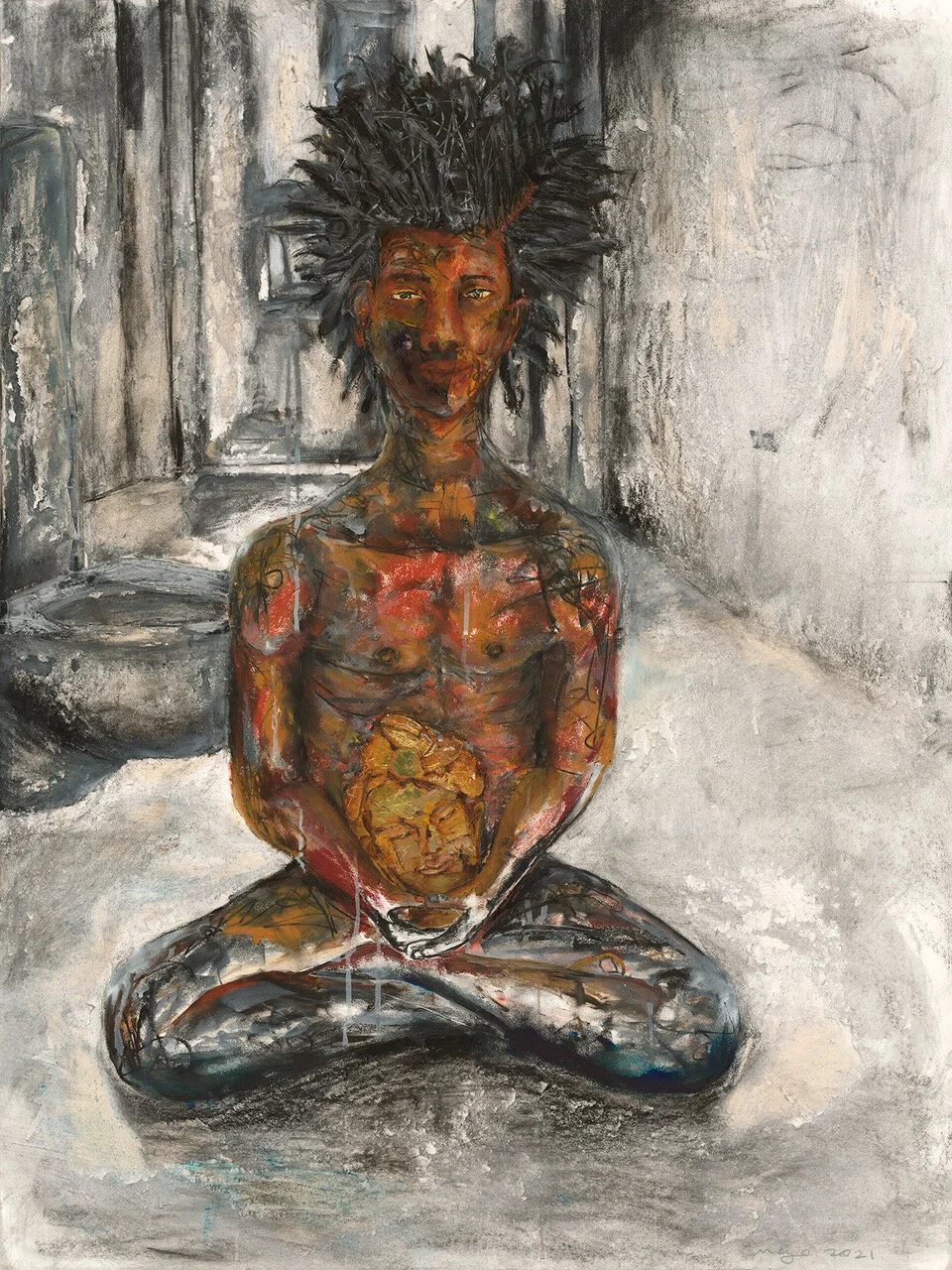Excessive Force
Moyo 2021
Notes on Excessive Force, 2021
I considered titling this painting When They Call You a Terrorist, after Patrisse Cullors' memoir -- because what happens when the powerful in a society sorted by race, class, gender, sexuality, citizenship status, and mental and physical abilities determine that the marginalized are a threat?
Anything.
All manner of executions.
Outrageously long prison sentences.
Solitary confinement for decades... and this is where we meet this youthful Black figure, sitting quietly and alone in a cell holding an old, crumbling, and rusting bust of a Buddha head. The cell itself is dilapidated but the boy remains a boy. In this case, not because he is a man (as I have said in my poem A Poem Without a Happy Ending): "bereft of experience to become " a man as a result of long decades in the isolation of solitary, but because when he was but a child, his existence was written out of some city, state, and federal budget. In its place, a prison cell was imagined for his future.
This painting developed while I processed painful thoughts and emotions stemming from the police killing of Adam Toledo (sp?), a thirteen year-old Brown boy from the westside of Chicago. After his murder, there was an attempt to make him into a threat -- to call him a terrorist in order to justify him being erased from Earth.
In the wake of the sound of Adam's body breaking under the weight of the police's bullet to his chest, the voices I heard attempting to place his murder in his own thirteen year-old hands triggered memories of my first arrest (also) at the small age of thirteen. For a prank to be cool, my adolescent -- though (now) understandably unwanted behavior was criminalized with the outlandish charge of terroristic threats.
Six years later, while on trial for capital murder, the prosecutor cited the terroristic threat charge as proof that I was essentially never a child -- only a threat. And that the jury needed to vote for my death.
Learning of Adam's murder was so painful for me because I could viscerally feel his tender, complicated, targeted, and at-promise youth -- as well as how so often lives like his and mine are so often subjected to the excessive force of the state in fatal and "less-than-lethal" ways that nevertheless leave us traumatized.
In the end, I landed on the title Excessive Force because I hoped to encourage us to think in nuanced ways about this technical term. Also, I hoped to make the point that there are excessive reserves of force in our communities, in our country. And that is what we mean by defund the police, defund the death penalty -- and why Mumia says: "Let our mission be abolition."

